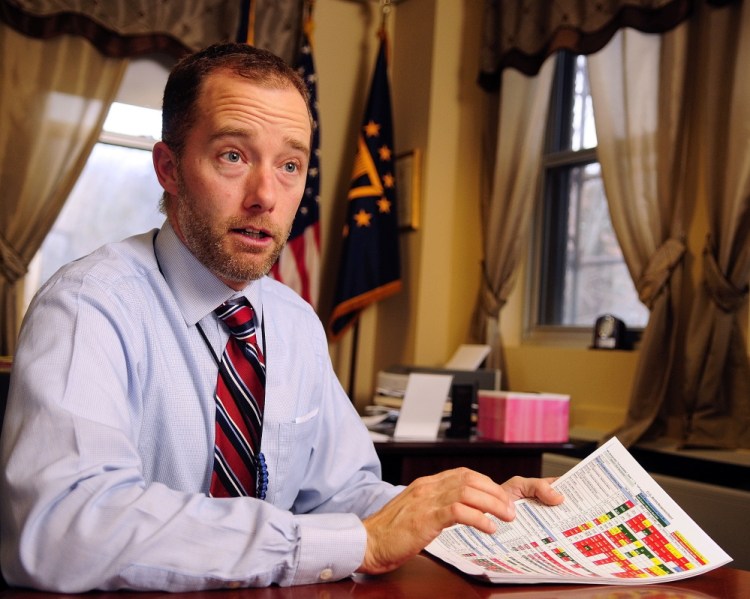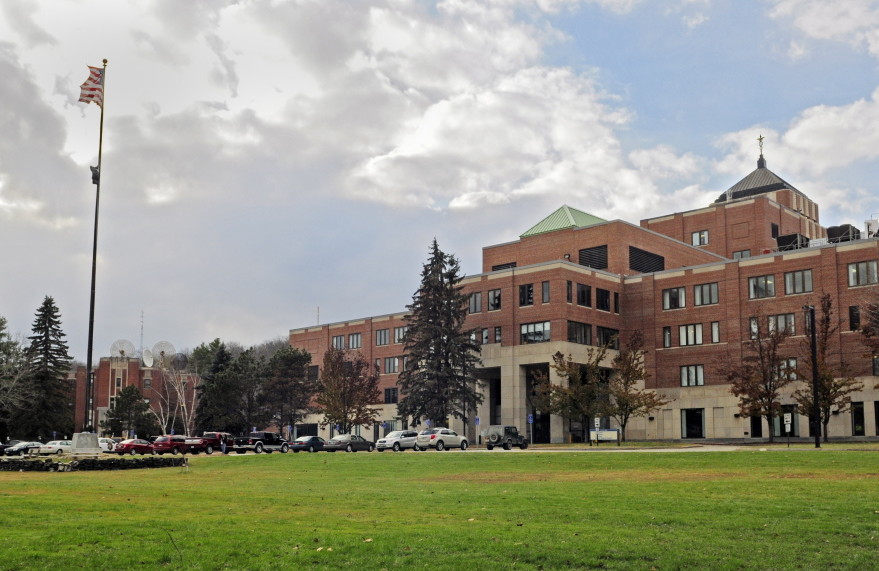The VA Maine Healthcare System has been linked to “nationwide systemic problems” that led to veterans not receiving or waiting long periods for mental health services because of inappropriate scheduling practices and other problems, according to a report released Wednesday by a federal watchdog.
The Office of the Inspector General in the U.S. Department of Veterans Affairs found problems with scheduling, staffing and employee morale in the mental health unit of the veterans system based in Togus, which serves nearly 10,000 patients who get treatment statewide for problems such as post-traumatic stress disorder and depression.
The agency’s report links Togus to problems similar to those at veterans’ hospitals nationwide that sparked a scandal last year. Interviewees said patients might be “slipping through the cracks” of the system, and the report found “many of the same inappropriate referral and scheduling practices” that watchdogs “previously reported as nationwide systemic problems.”
Among the report’s findings were that low staffing levels and turnover have led to patients not getting appointments or enduring long wait times. One veteran in his 40s with PTSD was referred to the hospital for individual therapy in late 2013, and while he has participated in group sessions and workshops since then, he hadn’t received a one-on-one appointment by mid-May, more than 18 months after a request.
Togus employees also closed appointment requests for patients before services were delivered and for some who weren’t willing to be seen within 14 days, which is the VA benchmark for a comprehensive examination for first-time patients. Also, the report said higher-ups directed employees sometimes not to log referrals in their computerized system, making it difficult to track whether patients had “unmet needs.”
Glenn Bergmann, a partner with Bergmann & Moore, a national law firm in Maryland that handles veterans’ benefit cases, called the findings “unconscionable.”
“This hurts the entire community, because these are young men and women who are trying to get the help they need so they can move forward with their families and careers,” he said. “Delaying their care can leave them so frustrated that they avoid Veterans Affairs entirely.”
In a statement, Togus Director Ryan Lilly said “mistakes that may have been made were generally a byproduct of either an outdated scheduling system or a lack of understanding” of administrative rules and said that some scheduling problems have been fixed.
But members of Maine’s congressional delegation criticized Togus in statements on Wednesday.
“Our veterans and their families deserve nothing but the highest quality care and support services, and when we fail to meet that standard, we have an obligation not only to recognize that mistakes have been made, but also to make every possible effort to right that wrong,” said Sen. Susan Collins, a Republican, and Sen. Angus King, an independent.
U.S. Rep. Chellie Pingree, a Democrat from Maine’s 1st District, said she was “deeply disappointed” with some of the findings. U.S. Rep. Bruce Poliquin, a 2nd District Republican, said he was “assured” by Togus executive staffers at a February tour that inspectors “would find no issues” but said that the report shows that “Togus has failed” to give veterans the care they “were promised, earned and deserve.”
State leaders of the American Legion were reviewing the report Wednesday, according to Amedeo Lauria, a Legion service officer in Togus, who said the group supports any recommendations to improve services and fix deficiencies.
The eight-month inspection from the VA OIG included more than 40 interviews with Togus employees and other subjects, emails and health records, including a site visit in October. It was requested by former U.S. Rep. Mike Michaud, a Democrat who represented the 2nd District until earlier this year.
The Kennebec Journal reported the allegations in November, when Lilly admitted a staffing problem. From 2011 to 2014, requests for mental health appointments rose 30 percent, while staffing fluctuated from 72 to 80 from 2012 to 2014, according to the hospital. However, Togus was authorized to hire 17 new mental health employees under a law passed by Congress last year.
Watchdogs said they didn’t substantiate most of the allegations prompting the probe, including that staff were directed to omit information related to service-connected mental health conditions from records to limit the number of veterans seeking appointments. The report also said inspectors couldn’t prove that Togus was motivated to take scheduling shortcuts to meet national VA wait-time benchmarks, a problem that a VA audit last year called “pervasive” nationwide.
But it found that Mary Tibbetts, Togus’ director of mental health services, discussed meeting performance measures in correspondence, at one point saying she wanted to “fly under the radar” on them. Also, interviewees criticized Tibbetts, saying employees had “chronically low morale” and a “pervasive fear of reprisal,” though Lilly told inspectors that while her statements and actions “could be interpreted as threatening,” they weren’t intended to be and communication has improved.
The VA OIG made recommendations to improve services at Togus, which concurred with the report’s findings and said that officials have fixed or are fixing the identified issues. Language in a computer program that instructed employees not to request appointments if a veteran wasn’t willing to be seen within 14 days was removed. Other fixes are scheduled to be implemented by September.
“We take any opportunity to improve our service seriously and remain dedicated to the commitment to provide outstanding care to every patient every day,” Lilly said.
Michael Shepherd — 370-7652
Twitter: @mikeshepherdme
Send questions/comments to the editors.





Comments are no longer available on this story